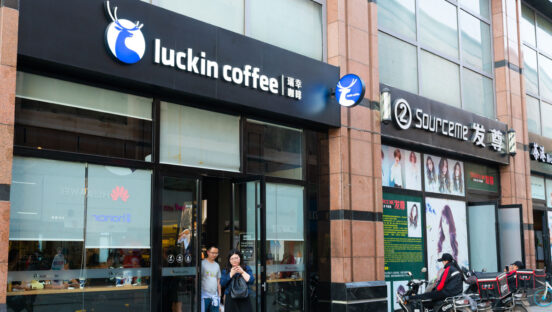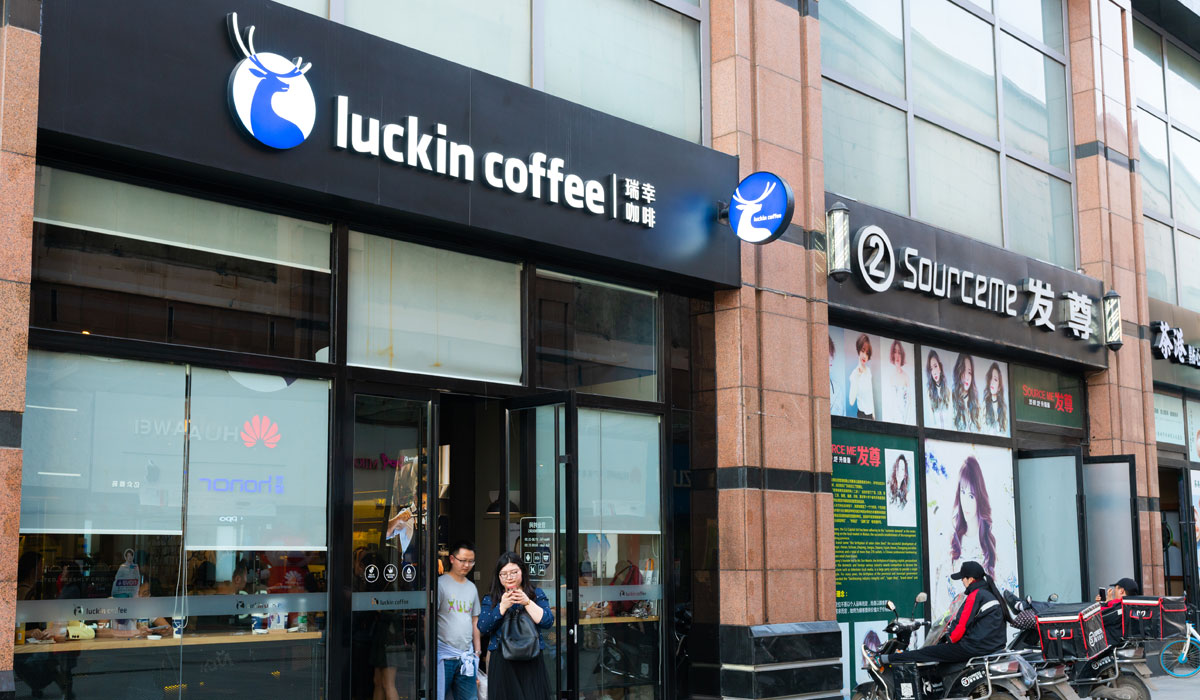Chinese coffee chain Luckin Coffee announced Thursday that it’s receiving a $250 million investment from two private equity firms in China.
Centrium Capital agreed to provide $240 million while Joy Capital will give Luckin $10 million. The chain added Centrium and Joy could upsize the total by $150 million under certain circumstances. Luckin said it will use the proceeds to facilitate restructuring and full obligations under its settlement with the SEC.
“The transactions allow the company to focus its balance sheet on the continued execution of its business plan, focused on growing the core coffee business and achieving its long-term growth targets,” Luckin said in a statement.
Luckin has spent the past year surrounded by controversy. After a lengthy anonymous document reported multiple fraud allegations in January 2020, the coffee chain declared a few months later that it was internally investigating claims of fabricated sales and inflated expenses.
The SEC accused the company of fabricating more than $300 million in retail sales from at least April 2019 through January 2020. Additionally, Luckin allegedly overstated its revenue by 28 percent in the period ending June 30, 2019, and by 45 percent in the period ending September 30, 2019. During that time, Luckin raised more than $864 million from investors. Some employees tried to conceal the fraud by inflating expenses by more than $190 million, creating a fake operations database, and altering records.
Because of the ordeal, Luckin agreed to pay a $180 million fine. Company leadership didn’t survive the scandal either—CEO Jenny Zhiya Qian, COO Jian Liu, and Chairman Charles Lu were all dismissed throughout 2020. Several other employees involved with the fraud were fired, as well.
Then in February, Luckin filed Chapter 15 bankruptcy to protect itself from U.S. creditors while it restructured debt in the Cayman Islands court system. In March, the brand said it entered a restructuring support agreement with holders of a majority of its $460 million convertible senior notes.
“We are pleased to reach this agreement with our noteholders, which represents an important milestone for Luckin Coffee,” CEO and Chairman Dr. Jinyi Guo said back in March. “Today, we have a new leadership team and a viable plan to return Luckin Coffee to growth and value creation. The Board of Directors and management team believe that the restructuring is in the best interests of the company and its stakeholders. We will continue to take action to strengthen our capital structure while delivering outstanding products and services for our customers.”
In conjunction with the announcement of the major investment, Luckin also revealed that it appointed Centurion ZD CPA & Co. as its new auditor. The coffee chain said it had “no disagreements on any matter” with previous auditor Marcum Bernstein & Pinchuk.
Luckin further noted that while it has given full access to MarcumBP, the accounting firm claims “it has has not gathered sufficient independent third party data or conducted sufficient audit procedures” to finish the audit due to certain areas in the company’s information technology general controls during 2019, when the major fraud occurred. To address the historical control issues, Luckin said it has implemented “remediation enhancements” to its controls environment.
Luckin said it will work with CZD to “expeditiously” file its annual reports for 2019 and 2020.
John Zolidis, analyst with Quo Vadis Capital, described Luckin as “one of the most unusual situations we’d ever seen” and that the trend continued with the previous auditor “apparently unable or unwilling to complete the job,” according to Bloomberg.
The coffee chain was founded in 2017 with the main goal of rivaling Starbucks. In that time, Luckin has opened more than 4,700 locations across China. The chain went public on May 17, 2019, raising roughly $645 million in its IPO. However, due to the fraud allegations, it was removed from the Nasdaq on July 13, 2020.
The brand has attracted customers by offering free vouchers and discount coupons. More than 90 percent of its units are pick-up stores around office buildings and universities to target its millennial customer base.













